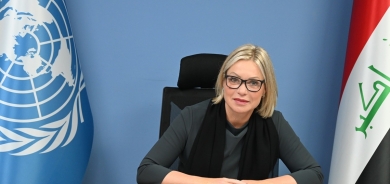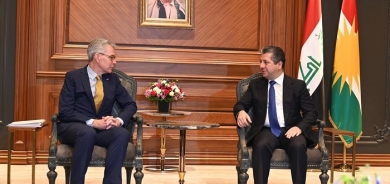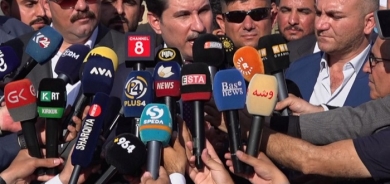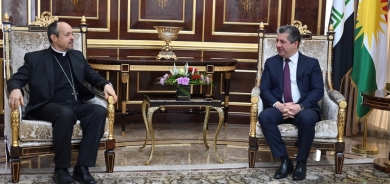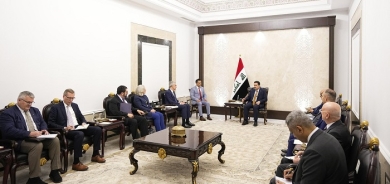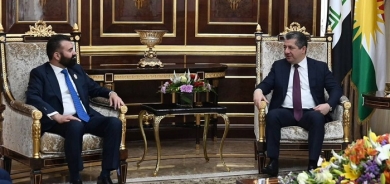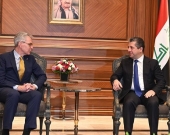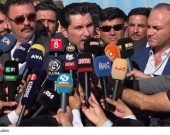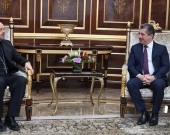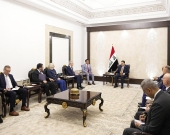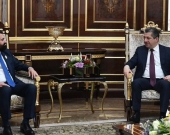Afghan protest flares over shooting spree; Taliban threatens to behead U.S. soldiers
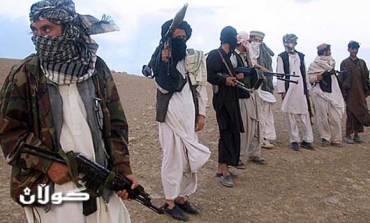
The demonstration in the eastern city of Jalalabad came after the U.S. embassy in Kabul warned its citizens to be on their guard, mindful of a wave of deadly protests last month against the burning of Korans at a U.S. military base.
The Afghan Taliban threatened on Tuesday to behead U.S. troops in revenge for the massacre of 16 Afghan civilians by a lone American soldier in southern Afghanistan, killings that sparked condemnation and Afghan calls for an early U.S. withdrawal.
“The Islamic Emirate once again warns the American animals that the mujahideen will avenge them, and with the help of Allah will kill and behead your sadistic murderous soldiers,” Taliban spokesman Zabihullah Mujahid said in an emailed statement, using the term with which the Islamist group describes itself, according to Reuters.
About 2,000 university students in Jalalabad shouted “Death to America -- Death to (Barack) Obama,” burning the U.S. president in effigy and blocking the main highway to Kabul, according to AFP.
“Jihad (holy war) is the only way to get the invading Americans out of Afghanistan,” one banner read, before the protesters dispersed peacefully after about two hours.
The United States and its NATO allies are looking to withdraw their 130,000-odd combat troops from Afghanistan by 2014, although Sunday's massacre in Kandahar risks exacerbating a mood of war-weariness in the West.
In Washington, Obama warned the U.S. public against a hasty drawdown from Afghanistan, after a weekend poll said most Americans believe the war is not worth the cost and want an early withdrawal.
“It’s important for us to make sure that we get out in a responsible way, so that we don't end up having to go back in,” Obama said in an interview with CBS station KDKA in Pittsburgh.
“But what we don’t want to do, is to do it in a way that is just a rush for the exits,” he said, stressing the need for an orderly withdrawal to get U.S. personnel and equipment out, and to prevent al-Qaeda rebuilding.
Yet while warning against a precipitous pullout, Obama said in a separate interview with Denver CBS affiliate KCNC that it was “important for us just to make sure that we are not... in Afghanistan longer than we need to be.”
The Jalalabad students, echoing a call by the Afghan parliament on Monday, also demanded that the U.S. soldier be tried in public in Afghanistan.
But the United States made clear that the soldier would be subject to U.S. military law -- and that he could face execution if convicted.
Briefing reporters en route to a visit to Kyrgyzstan, Defense Secretary Leon Panetta was asked if the death penalty could apply. “My understanding is in these instances that could be a consideration,” he said.
The U.S. army sergeant was on his first tour of duty in Afghanistan after serving three tours in Iraq, according to U.S. officials.
He left his forward operating base in Kandahar province in the pre-dawn darkness Sunday and went on a murderous rampage, before turning himself in back at the base, Afghan and American officials say.
He is accused of breaking into village homes and opening fire, killing 16 people including women and children, in an incident that has further imperiled Afghan-U.S. relations as the countries try to craft a post-2014 partnership deal.
The soldier has not been named. But officials said he is in his 30s, and that the military investigation would look into whether he may have been suffering from mental trauma.
“War is hell. These kinds of events and incidents are going to take place,” Panetta said, portraying the shooting as an isolated incident.
“We cannot allow these events to undermine our strategy or the mission that we're involved in. It's important that we push on.”
Afghan President Hamid Karzai has described the shootings as “unforgivable,” and the parliament declared that “people are running out of patience” over the behavior of the foreign troops deployed in the country.
The Taliban, leading a 10-year insurgency against the foreign troops and Karzai’s government, threatened to take revenge against “sick-minded American savages.”
The massacre is the latest serious test of the U.S.-Afghan alliance as the two countries pursue difficult talks on securing a strategic pact to govern their partnership once foreign combat troops leave Afghanistan in two years.
One major sticking point is the Karzai government’s refusal so far to grant legal immunity to American troops -- the same issue that scuppered a U.S. strategic pact with Iraq.
The massacre is also the latest in a series of actions by troops that has provoked outrage in Afghanistan, and comes weeks after the burning of the Korans sparked riots that killed 40 people and plunged ties to an all-time low.

